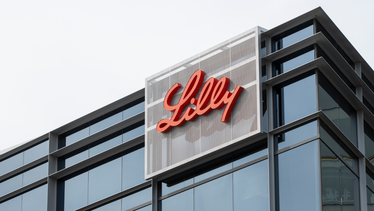This Week’s CGT News: Eli Lilly’s Verve takeover, and more
Our latest news roundup reports on Eli Lilly’s Verve takeover, novel CRISPR delivery research, a growing interest in CD5-based immunotherapy, and more
| 3 min read | News

Credit: Adobestock.com
Eli Lilly to acquire Verve Therapeutics
Eli Lilly & Company has agreed to acquire Verve Therapeutics in a deal worth up to $1.3 billion, aiming to strengthen its gene-editing portfolio in cardiovascular medicine. The deal provides Verve shareholders $10.50 per share upfront (about $1 billion total), plus a non-tradeable contingent value right worth up to $3 per share, payable when the first patient is dosed in a US-based phase III trial for VERVE‑102, bringing the total possible payout to $13.50 per share.
Verve‑102, which targets the PCSK9 gene to lower LDL cholesterol, is currently in phase Ib trials for heterozygous familial hypercholesterolemia and premature coronary artery disease. The therapy has received FDA Fast Track designation. Completion of the acquisition is expected in Q3 2025, pending regulatory approval and shareholder acceptance.
Positive progress for ZemcelPro
ExCellThera’s UM171‑expanded cord blood therapy ZemcelPro (dorocubicel) has received a positive opinion from the European Medicines Agency’s Committee for Medicinal Products for Human Use (CHMP), supporting potential approval for adult blood cancer patients who lack access to suitable donor cells. The recommendation is based on phase II clinical data showing promising survival and disease‑control rates in patients with high‑risk acute leukemias and myelodysplasias, including those with TP53 genetic mutations. The positive opinion follows an accelerated Marketing Authorization Application (MAA) assessment.
ZemcelPro works by expanding a patient’s cord‑blood stem cells ex vivo via UM171 to enable safer and more effective allogeneic transplants. The therapy remains investigational pending final European approval and ongoing global safety‑efficacy confirmation. A phase III trial is also expected soon.
Microenvironment archetypes identified
Researchers from The University of Texas MD Anderson Cancer Center have presented a comprehensive single-cell atlas of the large B cell lymphoma (LBCL) tumor microenvironment using single-nucleus multiome profiling of 217 patient samples. Published in Cancer Cell, the researchers identified three recurring microenvironmental archetypes, termed LymphoMAPs: FMAC (fibroblast/macrophage-rich, T cell–excluded), LN (lymph node–like, T cell–supportive), and TEX (T cell–exhausted, macrophage-inflamed). These archetypes reflect distinct cellular compositions, cell-cell communication pathways, and transcriptional programs. Notably, they are associated with clinical outcomes following CD19 CAR T cell therapy.
TEX tumors, characterized by exhausted CD8+ T cells and super-activated macrophages, responded poorly to CAR T cells, while LN tumors had the best responses. FMAC tumors, enriched in TGF-β–driven CAFs, showed limited T cell infiltration and moderate benefit. These findings suggest that the tumor microenvironment significantly influences immunotherapy response, and LymphoMAP classification may inform patient stratification and guide future combinatorial treatment strategies.
CD5-based therapies show promise
A report by Kuick Research has explored the developing market landscape for CD5-targeted therapies, especially CD5-directed CAR‑T cells, in treating T‑cell malignancies. CD5 is a promising antigen because of its broad expression across T‑cell lymphoma and leukemia subtypes. The lead candidate, MB‑105, is a first-in-class autologous CD5 CAR‑T currently in phase II after orphan drug designation by the FDA. The therapy features a proprietary CAR design that mitigates fratricide – T‑cells attacking each other – by downregulating CD5 expression. Multiple CD5-targeted cell therapies by other biotechs are also in early stages, testing approaches like gene-editing or NK cells to avoid fratricide. With commercial launch expected around 2030, the report outlines a rising clinical pipeline and strong interest in CD5-based immunotherapy for difficult-to-treat T‑cell cancers.
Lipid nanoparticle system for precision mitochondrial CRISPR delivery
A Scientific Reports study undertaken by researchers at Hokkaido University, Japan, and the University of Lübeck, Germany, presents a novel method for delivering the CRISPR/Cas9 genome editing system directly to mitochondria using lipid nanoparticles. Researchers designed a mitochondria-targeting carrier called MITO-Porter, which encapsulates CRISPR ribonucleoproteins (RNPs) and enables their entry into mitochondria via membrane fusion. The system was tested on HeLa cells and fibroblasts from mice carrying a mitochondrial point mutation (m.7778G>T) in the mt-Atp8 gene. RNP-MITO-Porter successfully caused targeted double-strand breaks in mitochondrial DNA (mtDNA), demonstrating cleavage activity both in isolated mitochondria and living cells. In mouse cells, mtDNA copy number at the target site decreased by about 35 percent, suggesting efficient editing. The method bypasses limitations of nuclear-based delivery and offers a potential tool to reduce harmful heteroplasmic mtDNA mutations. Further investigation will confirm precision and minimize off-target effects.



















